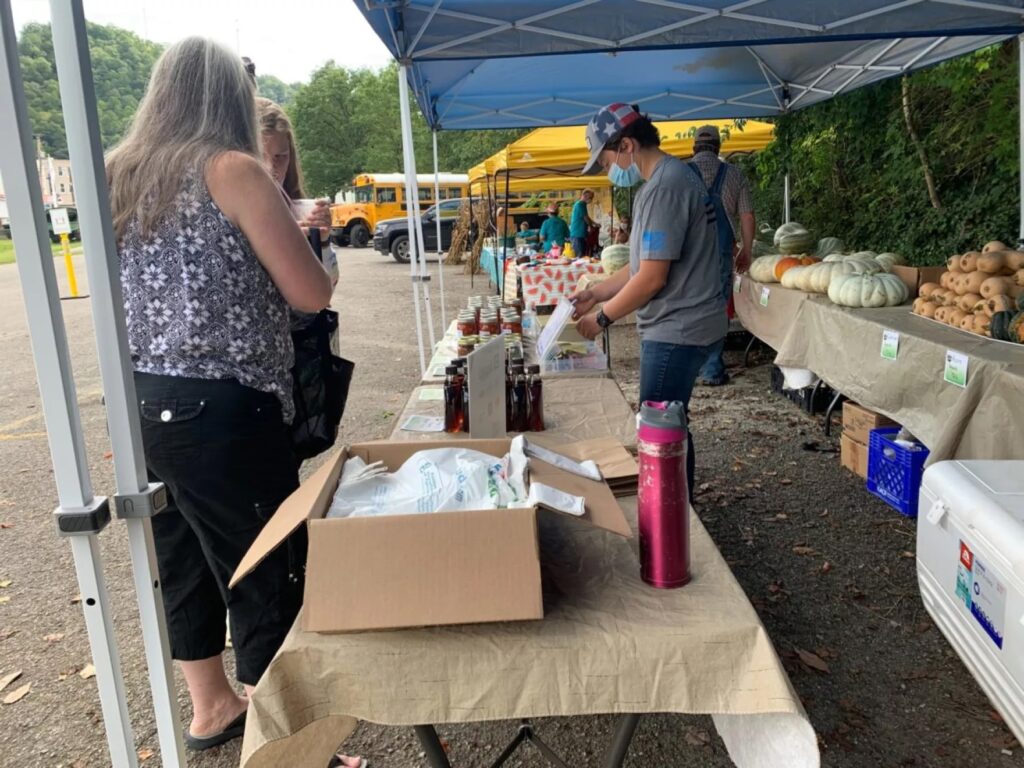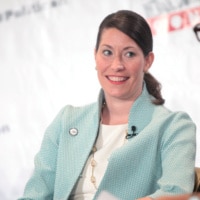SNAP recipients can get their work requirements waived in areas in Kentucky with high unemployment rates, and for now a state cabinet gets those waivers from the U.S. government. But if House Bill 367 passes, that would change.

The current version of HB 367 would shift control of those waiver requests to the Kentucky Legislature, so the legislature would be able to choose not to waive work requirements for certain “able-bodied adults without dependents” who get food assistance.
The bill’s sponsor, Earlington Republican Rep. Wade Williams, said the aim of the legislation is to reduce Kentucky’s worker shortage. Kentucky’s current SNAP policies make it “too lucrative to stay on government benefits and keeps people from getting back in the workforce,” he said.
The Kentucky Center for Economic Policy, a progressive think tank, said the change could put almost 16,000 Kentuckians at risk of losing their benefits.
When food assistance programs like SNAP are impacted, farmers markets across the state that accept those benefits as payment lose customers, said Kimberly Ishmael, the policy campaign coordinator of the nonprofit Community Farm Alliance.
Farmers markets can also help combat hunger in food insecure areas. They’re important in rural areas where the nearest grocery store is a county or two away, and more barriers to acquiring SNAP benefits could lead to a dearth of fresh food in those communities.
As of January 2023, 48 farmers markets in Kentucky accepted SNAP, according to data from the U.S. Department of Agriculture.
The Berea-based Community Farm Alliance also works on safety net programs for farmers, many of whom are poor and can’t afford to farm full-time, Ishmael said.
The version of HB 367 that the House passed also would reinstate a financial asset test and stricter income limits for SNAP applicants. The Kentucky Center for Economic Policy estimates this change alone would kick tens of thousands more people off SNAP.
Bill sponsor Republican state Rep. Wade Williams of Earlington indicated he is willing to drop that part of the proposal entirely. However, the bill has stalled in a Senate committee and it’s unclear if it will advance any further.
Ishmael talked to LPM’s Divya Karthikeyan about how creating barriers to SNAP benefits can have ripple effects across farming communities and Kentucky’s farming economy.
This interview has been edited for length and clarity.
Can you first tell me about how important SNAP benefits are for farmers markets and farmers specifically?
Farmers markets are very crucial to a lot of small and beginner farmers. A lot of farmers who are coming into the farming space for the first time are learning how to run a business. And many of them are participating in these programs that allow SNAP users to buy their products, which is, you know, not typical. Usually they have to go to a grocery store or you know, a retail space to buy local produce.
Kentucky Double Dollars is a program specifically for SNAP users to use at local farmers markets, that allows them to double their money. So they spend $10, you get an extra $10 to spend. So you leave with $20 worth of groceries. It’s been paramount to a lot of small business owners and a lot of small farmers in participating in these, especially if they’re new and starting out because it’s a whole new customer base.
So if House Bill 367 becomes law, what is the impact it’s going to have on farmers and farmers markets in terms of revenue, in terms of livelihoods?
A farmer makes $26,000, maximum $35,000 a year, and it’s very seasonal. They can’t survive off this one income. So we want them to be able to survive. So we see SNAP as just help and assistance, you know, to be able to get them to that full-time work that they desire.
So currently with House Bill 367, how it’s currently written, (it would be) detrimental to farmers and the customer base.
Were legislators really thinking about farmers within the scope of who this would impact if this bill passed and became law?
For far too long, especially in the state legislature, we have separated farmers from every other aspect because we try to hold them in their own space, because we’re an agriculture state, we lead with our farmers, you know, we do all of this stuff for them. And a lot of our legislators are farmers. But they like to hold space that says, “Oh, this doesn’t interact with each other. We’re over here, and this is over here.”
And I think for far too long, they’ve kind of, I don’t want to say gotten away with, but have very eloquently avoided getting the two things together and realizing that farmers are actually a part of all of these social programs. They are the ones feeding Kentuckians, they’re the ones growing the food. They’re the ones distributing it. When you think you’re hurting one group of people and you think it’s only about this certain group of people, you’re actually hurting so many other people — farmers, grocers, your local economy, you’re hurting the farmer market manager because then she doesn’t have as many customers that day. You know, like you’re just hurting everything all around.
This story is republished with permission from Kentucky Public Radio. Read the original.
Divya Karthikeyan is the Capitol Reporter at Kentucky Public Radio. Originally from Chennai, India, she’s reported for national and international outlets on politics, climate change, gender and caste inequality in India. She started out in the US as a graduate student at NYU’s Arthur .L. Carter Journalism Institute and interned at The New Republic and Gotham Gazette.






